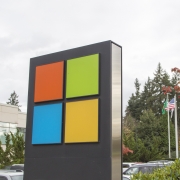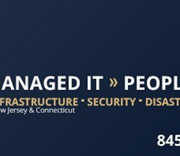The Ever-Evolving Threat
2015 is almost over and our computer systems are not only less safe from the criminal underworld, but the hackers appear to be winning, putting the cyber security industry on high alert! My own experience shows that when I update my anti-malware programs, a voluminous number of definitions are added on a daily basis. Yet, more variants keep coming out, overwhelming the cyber security firms’ capacity to stay ahead of the bad guys. It appears to be a losing battle.
The criminals themselves have changed
In the “good old days”, the bad guys would rob people, one by one, on the streets and in alleys around the world. But, stealing from people one-by-one is very time consuming, not to mention dangerous. Also, the possibility of getting caught and sent to jail is high—enter the internet.
Now, thieves can steal from millions of people in the comfort of their own home in places where law enforcement cannot (or will not) go. So, a criminal in Eastern Europe can become a millionaire with very little fear of being caught. In most cases, the world’s police forces cannot even identify the thieves, let alone catch them. The tool of choice—malware in its numerous forms.
In the cyber underworld: every person, business and nation is a target.
Criminals no longer need to go it alone. Underworld crime syndicates have created Crime-as-a-Service (CaaS) platforms for novice crooks. Now, if you “know the right people” or know how to access the deep web, you can become an instant crime mogul with state-of-the-art malware portals and top notch computer support! Sad, but true.
Malware is continually evolving
Over the past year, we’ve seen viruses, spyware, and other types of malware come onto the scene with warnings about “low detection rates”. This means that conventional anti-virus and anti-malware applications don’t know they’re there! Criminals have found ways of “slipping under the radar” when invading our systems to steal confidential information.
Some viruses use stealth to hide deep at the lowest program level, waiting for a predetermined time to attack its host. One insidious piece of malware called “Nemesis” modifies the boot process to make itself “invisible” to system checks and anti-virus programs.
Ransomware is all the (criminal) rage
Ransomware, of which CryptoLocker is the most famous, has proven to be a cash-cow for the underworld. Crime-as-a-Service (CaaS) organizations help wannabe cyber-criminals send millions of SPAM emails each day laden with infected links and attachments. Once a victim takes the bait, their files are encrypted, holding both individuals and organizations hostage. They either pay the ransom in untraceable Bitcoin or they lose their precious files forever.
Emboldened, the bad guys have upped the ante by raising their ransoms. A new ransomware has hit the market called Chimera. Not satisfied with merely threatening their victims with lost data; they now threaten to publish all of the victim’s files along with their stolen credentials if they’re not paid.
Hacking is a growth industry
Think about it—everything is being brought online. It’s called the Internet-of-Things (IoT), which is the enabling of objects (i.e. cars, aircraft, toys, medical devices, baby monitors, house meters, thermostats, etc.) to collect and exchange data through the internet. Everything is being connected. But what most people don’t realize—and they soon will—is that most of these devices have very poor security if at all. So, here’s a rule for you to keep in mind: if it’s online it can be hacked!
How safe are we when a low-level criminal can place malware onto a medical device, such as an implanted defibrillator, allowing a hacker to control it. Our Government was so concerned that they had doctors disable the wireless feature in the defibrillator implanted in one of our former Vice President’s to protect him from anyone trying to hack into it and do him harm. What about the rest of us?
The real and virtual worlds are meshing. Criminals can do physical harm to their victims even though they’re thousands of miles away. Hacking into cars, homes and children’s internet-enabled toys and games can have serious consequences. The stakes are high. The cyber battlefield has grown immensely and involves people, businesses and even whole nations.
We need to fight back
- All nations must join together to pursue and convict hackers wherever they hide. Hackers must not feel safe no matter where they live.
- Here in the U.S., we need to start electing officials that truly understand the dark side of the Net and update antiquated laws to prosecute internet criminal behavior.
- Regulations must be passed requiring companies that manufacture internet-enabled devices (appliances, toys, etc.) to include high levels of security to keep the public safe.
- Privacy is a big issue so we need laws to protect us against private camera-enabled drones. Perhaps background checks may be in order for those purchasing drones to make sure they are kept out of criminal and terrorist hands. Recent news footage showed a teen cooking a turkey with a drone outfitted with a flame thrower! Drones have been also known to be equipped with guns.
- As individuals, we must take steps to protect ourselves and not be over-reliant on laws and regulations. That means common-sense computing habits.
- Don’t click on email links or open attachments from senders you do not know.
- Keep all computer software up-to-date (Operating System, anti-malware programs, and third party applications).
- Even though they can’t prevent all infections, especially the new ones coming out daily by the thousands, use and keep updated anti-virus programs on EVERY computer.
- Use strong passwords and make sure you don’t use the same one for all programs and applications.
- Businesses should heed the above warnings but also have their computer systems managed, monitored, and maintained by a Managed Services Provider (MSP). An MSP will be able to harden your computer network and react swiftly to contain threats.
- ALL businesses should stop thinking in terms of data backup and start thinking about Business Continuity. The idea is not only to keep your data safe, but to be able to continue operations should a disaster or cyber-threat occur. Business Continuity systems are good insurance against ransomware and will allow businesses to negate this serious threat.
Conclusion
We don’t know what the next year will bring, but one thing we all can be sure of is that cyber-crime will grow and evolve even faster than the year before. Right now, the good guys simply can’t keep up. It’s up to us to take actions to help ourselves.
Write to your officials and ask them what they’re doing about this growing problem. Keep informed and practice good computing habits to protect yourself. Above all, be careful in cyber-space.
Joseph Imperato Sr. is the Managing Partner for XSolutions Consulting Services, a Managed Services Provider (MSP) delivering Computer Support, Business Continuity, Cloud Services, and IT Consulting to New York, New Jersey, and Connecticut businesses. Call us at (845) 362-9675 and see how we can help your company.












